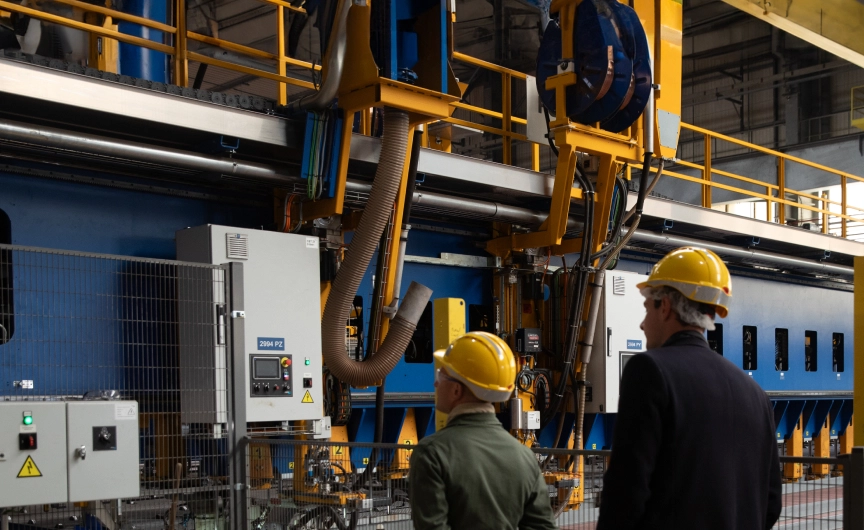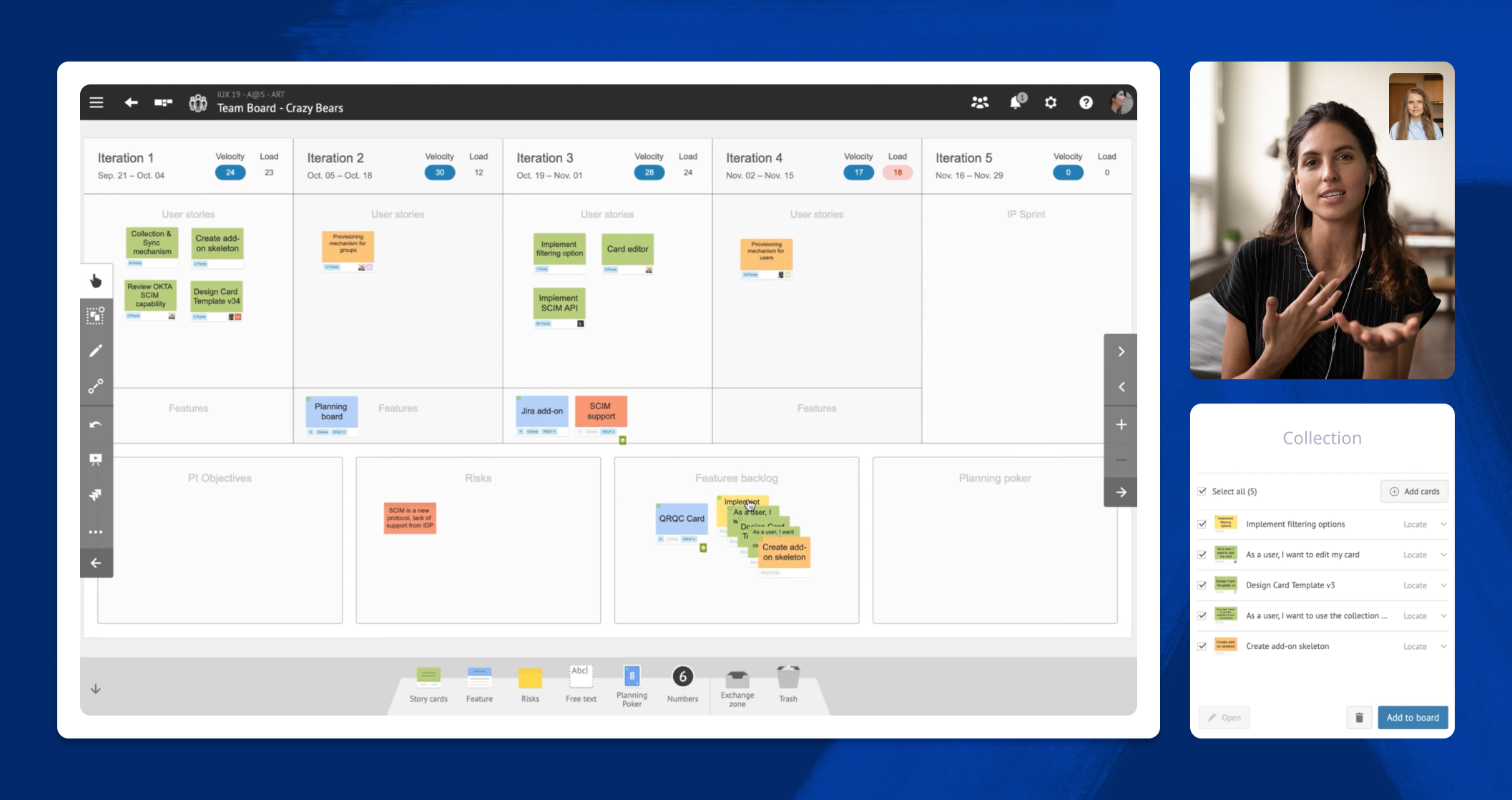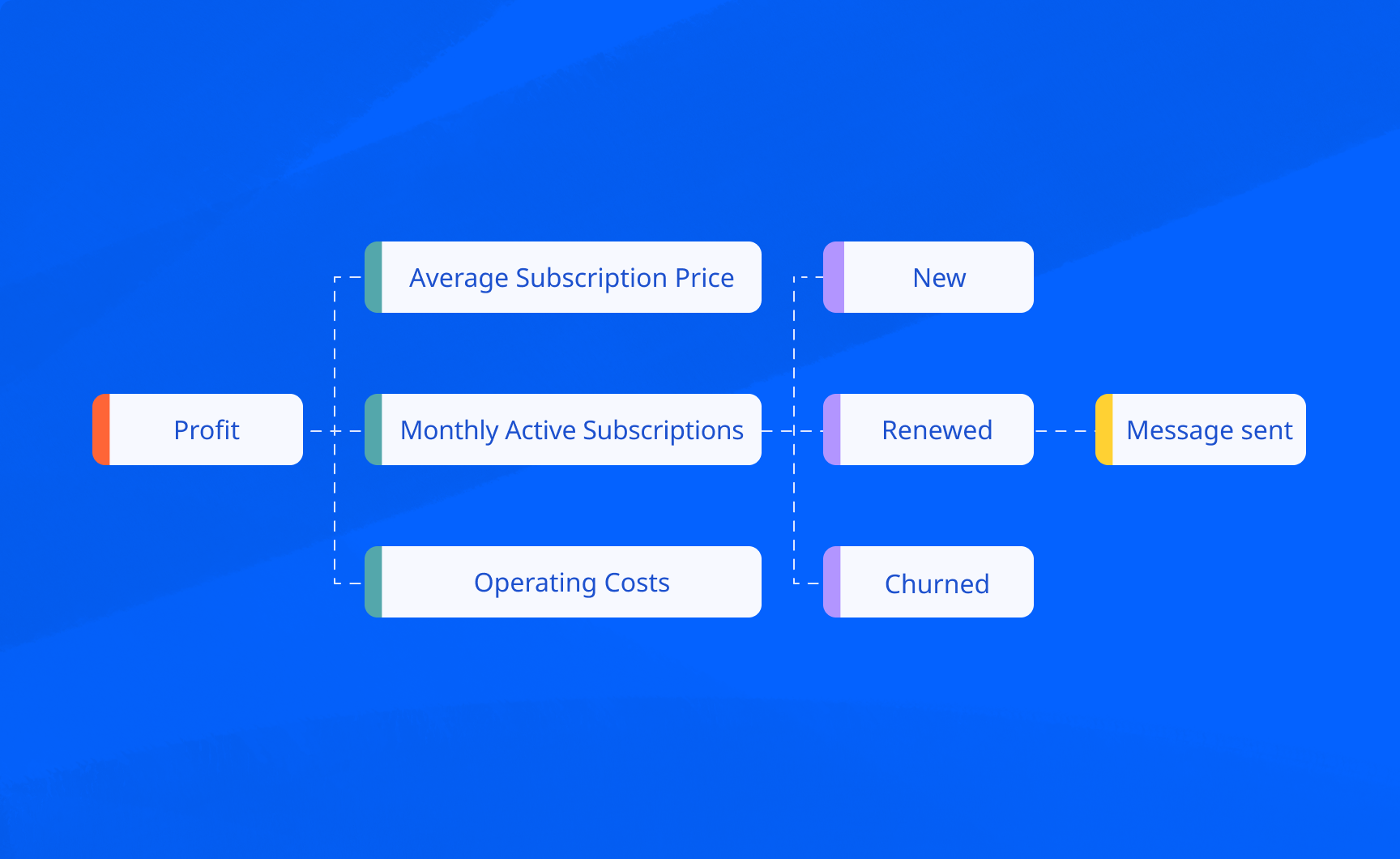Hey, let’s start your
iObeya journey!
Setting the scene
The manufacturing sector relies on a multifaceted workforce that plays a pivotal role in its success and expansion. Their contributions are indispensable for the effective functioning and development of manufacturing industries. In many advanced economies, a substantial segment of the manufacturing workforce is increasingly aging, with many nearing retirements. This departure of seasoned professionals is creating a void that proves demanding to replenish with younger, skilled talent.
Furthermore, the rapid evolution of technology within manufacturing has exacerbated an important skills gap. Many current employees lack the digital proficiency necessary for the operation and maintenance of contemporary machinery and automated systems. Meanwhile, there is a shortage of workers with the required technical skills.
Essential skills for the traditional Lean Manufacturing workforce
In the realm of lean manufacturing, a wide array of skills is essential for individuals to thrive in an efficient and well-organized production setting. Below are listed crucial skills that individuals in lean manufacturing need to possess:
- Problem Solving which is key to continuous improvement.
- A strong comprehension of machinery , equipment, and software used in manufacturing. This can also encompass expertise in automation, robotics, and computer-aided design (CAD)
- Strong teamwork and communication skills are essential for functional teams to work together and achieve common goals.
- Accuracy and precision are vital to minimize waste and defects.
- Lean manufacturing places a strong emphasis on efficiency, making time management skills indispensable for meeting production schedules and adhering to deadlines.
- A deep understanding of lean manufacturing principles such as 5S, Kaizen, JIT (Just-in-Time), and Value Stream Mapping.
- Workers must be aware of safety protocols and how they evolve and adhere to them.
- Leadership skills are a necessity for supervisors and team leaders as they play a crucial role in guiding their teams and steering continuous improvement initiatives.
- Implementing quality control measures to reduce defects is crucial and understanding quality standards.
- Identifying and eliminating waste, such as overproduction, defects, and unnecessary inventory.
This non-exhaustive list of skills enable a lean manufacturing workforce to optimize their processes, reduce their waste, and continuously improve operations, ultimately contributing to increased efficiency and competitiveness.
How modern lean manufacturing is evolving
Lean manufacturing is constantly evolving to adjust to shifting market dynamics, emerging technologies, and evolving customer demands. We have observed various trends and developments in the evolution of the industry such as the onset of digital technologies like IoT (Internet of Things), Big Data analytics, artificial intelligence (AI), and automation. The notion of Industry 4.0 has also promoted the connectivity of systems and data to enhance lean practices further.
The growing recognition of environmental concerns, including climate change, pollution, and the depletion of resources, has spurred a heightened focus on sustainable manufacturing methods. Green manufacturing is in harmony with the overarching objectives of lessening environmental harm and preserving our natural resources. Organizations are embracing environmentally friendly approaches and waste reduction, not solely to enhance efficiency but also to diminish their ecological impact.
The manufacturing industry has been profoundly affected by the COVID-19 pandemic in multiple ways. It caused disruptions across global supply chains, stemming from factory closures, transportation constraints, and workforce scarcities. This resulted in numerous manufacturers encountering delays in acquiring essential raw materials and components, subsequently leading to production slowdowns or even halts. Consequently, the pandemic underscored the critical significance of resilience, adaptability, and digital preparedness within the manufacturing sector. These transformations are expected to have lasting effects, significantly influencing the trajectory of manufacturing in the future.
Similar to other sectors, the recent increase in interest rates has exerted substantial influence on manufacturing research efforts and the scaling up of manufacturing startups. This has had implications for their access to capital, growth potential, and overall sustainability. Startups frequently hinge on loans and credit to finance their day-to-day operations and research initiatives. Elevated interest rates inflate the expense of borrowing, rendering the acquisition of capital a more costly endeavor for startups. Consequently, this financial burden can place strain on their monetary reserves, constraining their capacity to allocate resources towards research and development initiatives. Slowing down research and minimizing start-ups’ impact has a direct effect on innovation within the manufacturing sector which is lagging already.
How digitalization helps address the challenges of the modern era
Technological Adaptability
Incorporating digitalization and innovation into the manufacturing landscape is paramount for the existing workforce to retain their competitiveness and relevance. Cultivate a mindset of perpetual learning, staying abreast of the latest technological breakthroughs, industry trends, and digital tools pertinent to your field. Prioritize the development of digital skills, encompassing proficiency in data analysis, automation, programming, and acquaintanceship with digital manufacturing technologies like IoT, AI, and robotics. Additionally, recognizing the ethical dimensions of digitalization, encompassing issues such as data privacy and security must remain a priority.
Even as digitalization introduces automation and heightened efficiency, the foundational principles of lean manufacturing still remain significant. Grasp how digital tools can complement and enhance lean practices, with the goal of elevating productivity and curtailing wastage.
Digitalization for Sustainability
The adoption of digital tools and technologies can contribute to a more environmentally sustainable manufacturing industry through various means. For instance, the integration of tools like Industrial Internet of Things (IIoT) sensors and smart meters enables real-time monitoring of energy consumption. This data empowers manufacturers to pinpoint energy inefficiencies and implement energy-saving strategies, such as optimizing equipment usage and scheduling. As a result, energy consumption is reduced, leading to lower greenhouse gas emissions. Furthermore, the application of data analytics and machine learning in predictive maintenance allows manufacturers to anticipate equipment failures proactively. By conducting maintenance only when necessary, this approach minimizes unplanned downtime, reduces resource wastage, and extends the longevity of machinery. Another example is the utilization of Product Lifecycle Management (PLM) software that can play a crucial role in environmentally conscious product design. Digital tools assist in evaluating the environmental impact of product designs and facilitate the selection of materials and processes that minimize harm to the environment.
Steering through VUCA's Unpredictable Landscape
Technology assumes a pivotal role in assisting organizations in confronting the complexities of a VUCA (Volatility, Uncertainty, Complexity, and Ambiguity) environment. It empowers organizations to gather, process, and analyze vast datasets in real-time. Using data analytics tools and machine learning algorithms, technology has the capability to unveil patterns, trends, and insights amidst the tumultuous landscape of a VUCA setting. This data-driven approach is instrumental in facilitating well-informed decision-making. Additionally, by harnessing historical data and employing predictive modeling, organizations can proactively anticipate potential disruptions and emerging trends. This foresight enables them to engage in proactive planning and risk mitigation strategies when confronted with uncertainty. Furthermore, technology fosters remote work and virtual collaboration, equipping organizations to uphold productivity levels even during periods of disruption. Cloud-based tools, project management software, and virtual private networks (VPNs) streamline and facilitate remote work practices.
Final considerations for the future lean manufacturing workforce
Effectively addressing the challenges posed by technology, the environment, and VUCA landscape demands a comprehensive approach encompassing strategic planning, investments in technology and workforce development, a steadfast dedication to sustainability, and a readiness to pivot in response to evolving circumstances. Organizations capable of meeting these challenges head-on are poised for success in the future landscape of lean manufacturing.
Relying on advanced technologies and data analytics will require a workforce with the necessary digital skills. There will be shortages of talent proficient in these areas, making it challenging for companies to implement and sustain lean practices effectively. Investing in technology has no purpose if investment in the human capital doesn’t align, hence why investing in tomorrow’s skilled workforce is not only an HR objective but one that will sustain a whole industry.







